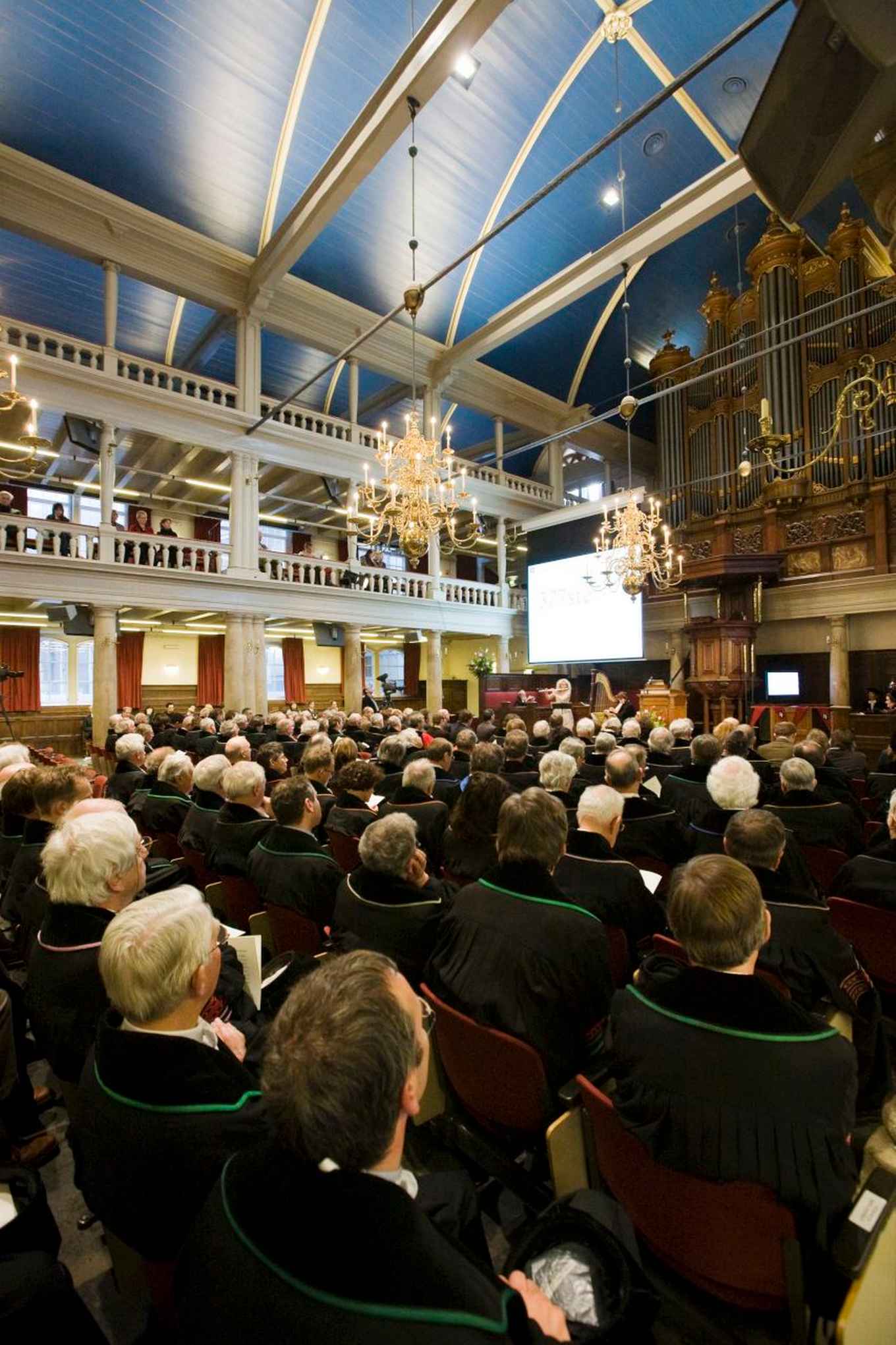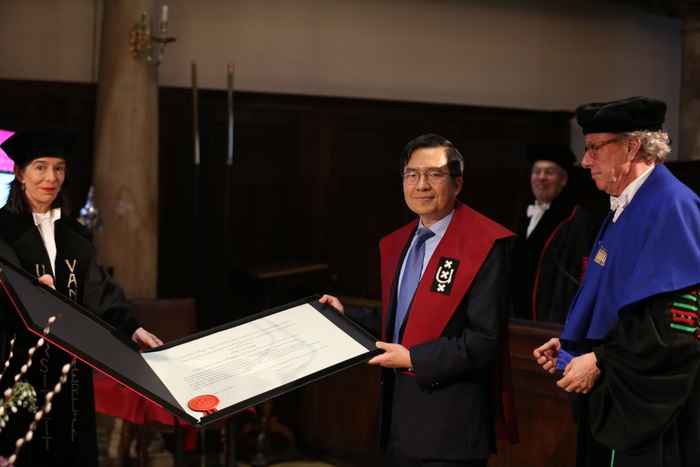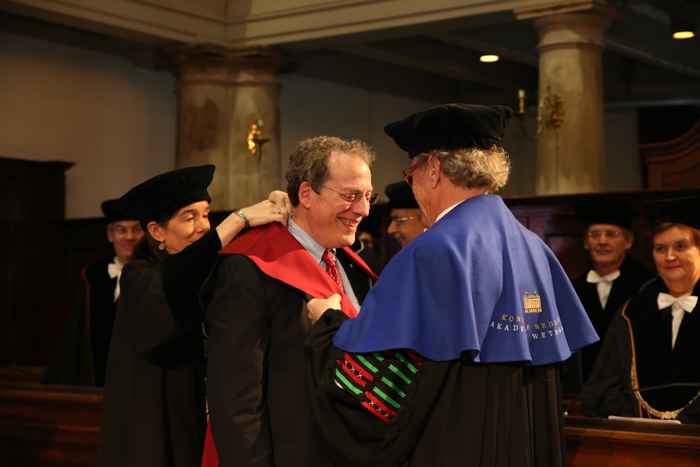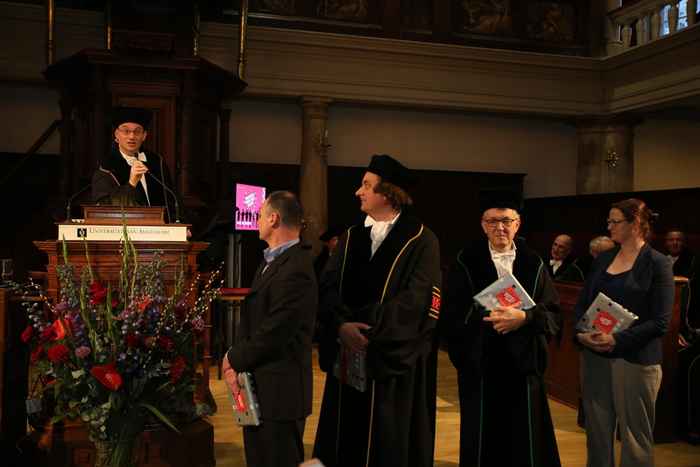University of Amsterdam celebrates 384th anniversary
11 January 2016

Open Science
In her opening speech, Professor Dymph van den Boom, rector magnificus of the UvA, discussed the consequences of Open Science: a transition in science as a result of broad access to rapidly increasing volumes of data. Open Science encompasses open educational resources, open access, open peer review, open methodology and open data, and could lead to new ways of collaboration, novel methods of research and a new relationship between science and society. By providing a number of examples, Van den Boom illustrated how Open Science is transforming the scientific process and how it will shape it even further in the coming years.
‘A monkey with a sense of rhythm’
In his Dies speech, Honing described a search that began only recently – one that seeks to answer what musicality is or could be, but also the extent to which we share musicality with other animals. Its overarching objective is to discover whether musicality has a biological basis, a theory not all scientists agree on.
Musicality, according to Honing, is the human capacity to observe and value music, and not primarily or exclusively the art of making music. Examples of this are ‘relative hearing’ (the recognition of a melody, unconnected to the precise pitch at which it is sung) and rythmic sense (hearing regularity in a varying rhythm). What is striking is that these primary musical skills spontaneously develop in babies and small children. Honing argued that rhythmic sense and relative hearing quite possibly make a fundamental contribution to that which makes us musical animals.

Honorary doctorates
As part of the celebrations, the UvA awarded honorary doctorates to Shih-Fu Chang from Columbia University and Andrew Feinberg from Johns Hopkins University School of Medicine. Chang received a doctorate for his many groundbreaking contributions to our understanding of the digital universe, particularly in the field of sound, language and imagery.

Feinberg received a doctorate for his pioneering research on human epigenetics and epigenomics, particularly his contribution to the unravelling of the epigenetic processes that lead to cancer and other diseases.
Lecturer of the Year: Bas de Bruin
The ceremony concluded with the presentation of the ‘UvA Lecturer of the Year’ award, which was won by Bas de Bruin (Chemistry).

The other nominees were Jan Tuinstra (Econometrics), Yaniv Hagbi (Hebrew), Frans Voorbraak (Medical Informatics), Don Weenink (Sociology), Johan Legemaate (Healthcare Law) and Greetje Renders (Dentistry).